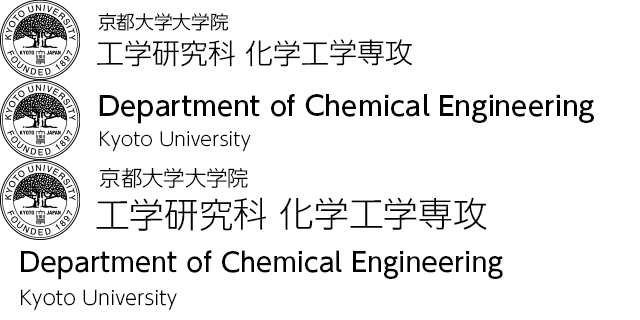Curriculum
Outline
In the 1993 reorganization, undergraduate programs of chemistry-related departments were integrated into the "Undergraduate School of Industrial Chemistry". The new school provided entering students with a solid grounding in the fundamentals of the discipline through a common curriculum. In the third year, the educational program was divided into three courses with specified student —Reaction Chemistry, Structural Chemistry, and Chemical Process Engineering— to train students in their future fields of specialization. Since 2005, the program has had slight modifications. Students now follow a common curriculum, before being divided from the third semester into one of three Undergraduate Course Programs, each with a specified student —Frontier Chemistry, Fundamental Chemistry, and Chemical Process Engineering—. The Fundamental Chemistry Undergraduate Course Program was renamed the Advanced Chemistry in 2021 and the Undergraduate School changed its name to the Undergraduate School of Chemical Science and Technology in 2024.
Of these, the Chemical Process Engineering course, which is the closest in focus to the earlier Chemical Engineering department, has a quota of around 40 students. In addition, each year, some 30 students go on to the master's program, with several students proceeding further to the doctoral program to tackle more advanced studies.
Educational Contents and Degree Requirements
Undergraduate Program
For graduation, students are required to earn a minimum number of credit points in each of the common subjects (general subjects) and Faculty of Engineering subjects (specialist subjects), as well as successfully pass assessments of performance in special research and oral exams. For further details regarding Faculty of Engineering subjects, please refer to the curriculum of the Chemical Process Engineering course.
Master's Program
In order to earn a master's degree, students are required to spend at least two years in the master's program, to earn at least 30 credit points in specialist master's course subjects, and to successfully pass the master's thesis assessment and exams. However, please note that there is a provision for students who display an outstanding research performances to complete their master's degree requirements in as little as one year.
Doctoral Program
In order to earn a doctoral degree, students are required to spend at least three years in the doctoral program, to earn at least 6 credit points in specialist doctoral course subjects, and to successfully pass the doctoral thesis assessment and exams. However, please note that there is a provision for students who display an outstanding research performances to complete their doctoral degree requirements in as little as one year (at least three years including the master's degree).
Doctoral Program Stage 1 (Master's Program) Curriculum
Doctoral Program Stage 2 (Doctoral Program) Curriculum
| Subject | Credits | Teacher |
|---|---|---|
| Special Topics in English for Chemical Engineering | 2 | Ohshima |
| Special Seminar in Chemical Engineering 1 | 2 | All faculties |
| Special Seminar in Chemical Engineering 2 | 2 | Matsusaka (SY 2018) |
| Special Seminar in Chemical Engineering 3 | 2 | All faculties |
| Special Seminar in Chemical Engineering 4 | 2 | Sano (SY 2018) |
| Special Seminar in Chemical Engineering 5 | 2 | Miyahara, Sano, Ohshima, Mae |
| Special Seminar in Chemical Engineering 6 | 2 | All faculties |
| Special Seminar in Chemical Engineering 7 | 2 | All faculties |
| ** Introduction to High Technology Material Science (11 times course), (15 times course) (in English) | 2 or 1.5 | Ashida, faculties in charge |
| ** Advanced Modern Science and Technology (4 times course), (8 times course) (in English) | 0.5, 1 | Ashida, faculties in charge |
| Instrumental Analysis, Adv. I* | 1 | Faculties in charge |
| Instrumental Analysis, Adv. II* | 1 | Faculties in charge |
| Frontiers in Modern Science & Technology (6 h course)*, (12 h course)* | 0.5, 1 | Faculties in charge |
| Project Management in Engineering* | 2 | Ashida, faculties in charge |
| Exercise on Project management in Engineering* | 2 | Ashida, faculties in charge |
| Thesis work (Dissertation) | All faculties |
